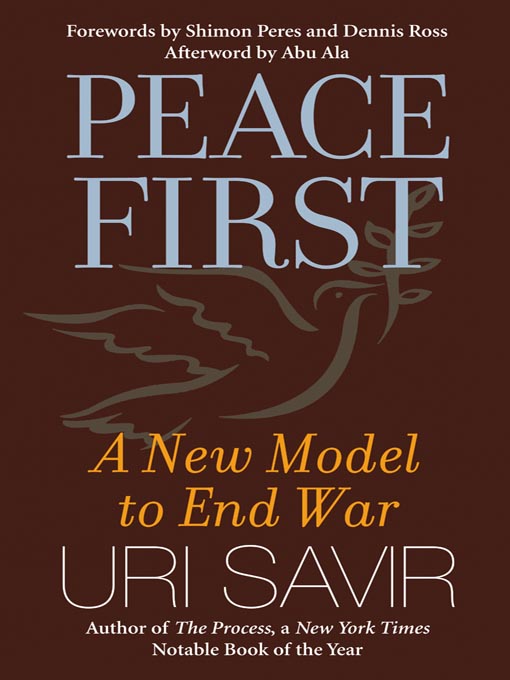In this groundbreaking new guide to building peace, international ambassador Uri Savir exposes the deadly ironies and anachronisms in contemporary efforts to solve global conflicts, and presents a radical new model for modernizing our efforts to build real and lasting peace, from the ground up. Peace First draws on Savir’s own deep, first-hand experiences from the Oslo Peace Process, as well as his peace-building efforts between enemies and former enemies in the African nations of Ethiopia, Eritrea, Rwanda, and Sierra Leone, the European regions of Northern Ireland and the Former Yugoslavia, and in Asia, Afghanistan, India, and Pakistan.
- Available now
- Sweeten Up Your Holidays!
- New eBook additions
- Graphic Novels, Manga, and Superheroes!
- New kids additions
- New teen additions
- Most popular
- Try something different
- Resources for Libraries
- New Russian Language Books
- New Spanish Language Books
- "Se me enchina la piel" - Libros espantosos para adultos
- See all ebooks collections
- New audiobook additions
- Full-cast audio
- Great Audiobook Narrators!
- New teen additions
- New kids additions
- Available now
- Most popular
- Try something different
- See all audiobooks collections
- Diverse Families
- Family Road Trip
- Reese Witherspoon's Book Club Reads
- The 100 Best Teen Books of All Time!
- Spies, Lies & Political Intrigue
- Great Adult Books for Teens!
- Transgender/nonbinary reads
- What's Next? Getting to a New Normal
- Twisty Psychological Thrillers
- Need a Laugh?
- Learn English
- African-American Romance
- Burnout: Signs, Symptoms and Strategies
- See all featured collections collections


